

TGIF ☀️
It’s been a long week, but we’d like to end it on a light note. We spent half of yesterday grovelling to our Events team and we’re back with a special offer for you.
For the next couple of days, we’re offering TC Daily readers 25% off tickets to Moonshot 2024.
All you have to do is enter the coupon code “MSTCD” for local tickets, and “MSTCD1” for international tickets.

Expansions
The long road to a Kenyan fintech expansion

Acquiring a fintech operating licence in Kenya is a long and complicated process. It can take up to two years to get an operating licence, mainly because the Central Bank of Kenya (CBK) has strict rules.
Fintechs must prove they meet capital requirements, consumer protection, and anti-money laundering requirements. As Kenya’s fintech space grows, the CBK has become even more cautious, adding more time to the approval process.
Only a few fintechs like Flutterwave have managed to extend their services to Kenya. They do this by partnering with local banks or mobile operators like Safaricom’s M-PESA or Airtel Money to enter the market. Others, like Nigerian fintech Rise, choose the M&A option.
The reality is that fintech is still fairly new in Africa, and regulators are cautious due to past money laundering issues. This often complicates the process. However, licence passporting could ease this by allowing fintechs to operate across multiple countries with a single licence.
Here’s Kenn Abuya reporting for TechCabal;
“Imagine you have a driver’s licence issued in Kenya. With ‘licence passporting’, you could drive your car in other countries in Eastern or Southern Africa without applying for a separate driving licence from each country. No African country has adopted licence passporting.”
Passporting could be a good plan. For this to work, central banks need to come together, at least regionally, to agree on rigorous standards to vet fintechs. Even a continent-wide passporting through the African Union is also a possibility; but first, the issue of money-laundering rife in fintech still poses a problem.
The order of achieving this looks somewhat like this: fintechs coming together to stop money laundering and fraud, then this makes a stronger case for the passporting idea that has been floated in the space.
In the meantime, fintechs looking to enter Kenya need to be prepared for a long, careful process to get fully licenced and operational.
Read Moniepoint’s 2024 Informal Economy Report
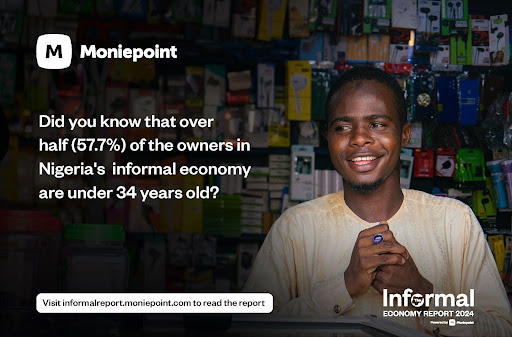
Did you know that 57.7% of the business owners in Nigeria’s informal economy are under 34 years old? Click here to find out more about the demographics of Nigeria’s informal economy.
Banking
GT Bank close to finalising Finacle CBA migration
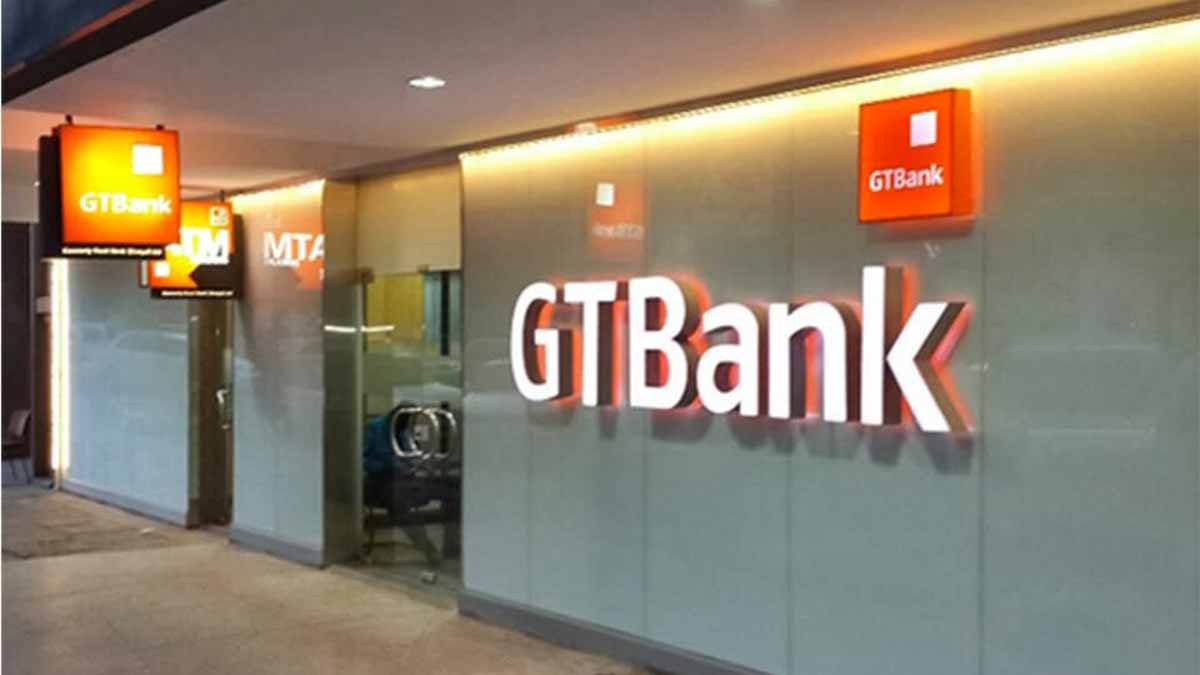
On September 9, Sterling Bank, a Nigerian tier-2 commercial bank formally announced its core banking application (CBA) migration to SeaBaaS, a locally-developed platform—a couple of days after we first reported.
Yesterday, we again reported that another bank, GTBank, a tier-1 bank, is finalising a migration from Basis/Banks to Finacle, a CBA platform provided by India’s Infosys.
While Sterling Bank went local, GT Bank is moving from the UK to India.
Both moves are also not defined by the same reason; Sterling Bank likely chose a local custom-built platform to reduce costs and cut dollar spend. GTBank, on the other hand, opted for Finacle because of its retail banking and non-banking demands.
While Finacle, according to a price comparison by Capterra—an independent software rating platform—is cheaper than Basis at base level, the former is tailored for large commercial banks that require extensive functionality, scalability, and customisations, which often drives up the cost.
Usually, Nigerian banks validate their core banking options by running small trials (Proof of Concept) to test the software, checking the vendor’s reputation, and getting feedback from other banks that use the system.
Local service providers have an opportunity here. They provide cheaper solutions and have timezone availability for post-migration support that may not be available in foreign companies.
While it is necessary to improve the reliability of their systems, another area they could look at is offering cloud-based CBA solutions that reduce the cost of hardware infrastructure and offer scalability.
However, it’s not a zero-sum case. While big Indian software providers are winning the pockets of big retail banks in Nigeria, local providers like Qore are finding business with smaller cooperatives, microfinance and digital banks, like HopePSB and Ekondo Microfinance Bank.
Fincra secures International Money Transfer Operator (IMTO) licence in Nigeria
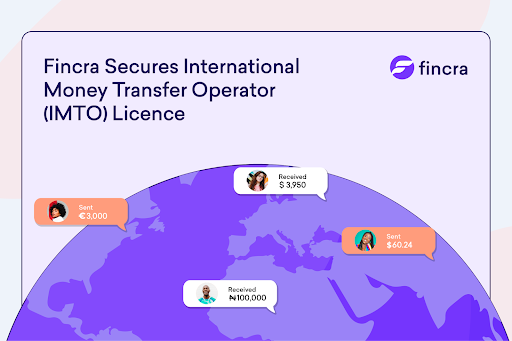
Since its inception, Fincra has provided businesses with local payment options. However, with the IMTO licence, Fincra can now manage funds transfers from abroad to Nigerian recipients more efficiently. Read more here.
Economy
Nigeria to generate $100 billion annually from creative economy

$100 billion. That’s the amount Nigeria intends to generate from its creative economy yearly. If you’ve followed the Nigerian movie industry closely—where films regularly hit ₦1 billion ($604,000) in box office revenue—and the Afrobeats to the world movement, you’d agree that these numbers are achievable.
However, the current contribution of Nigeria’s creative economy is a far cry from those figures. At $5 billion, the sector contributes just 1.2% to the country’s GDP. Despite the abundant talent and cultural richness, challenges such as inadequate infrastructure, funding constraints, and certain policy gaps have hindered increased contribution by the creative economy to the GDP.
Hannatu Musa Musawa, Nigeria’s Minister of Art, Culture and the Creative Economy is rolling up her sleeves to address those gaps.
Yesterday, the Minster released an 8-point plan aimed at transforming the country’s creative economy and creating 2 million jobs. The Ministry will focus on areas like film production, music, fashion, and digital content creation.
Key elements of the plan include improving access to funding for creative entrepreneurs, setting up digital platforms to promote Nigerian talent, and enhancing education and training programs tailored to the creative industries.
While the agenda aims to position Nigeria as a leading player in the global creative marketplace, success of the program hinges on proper implementation.
Psst 👀 Here’s Paystack Developer Contributor of the month
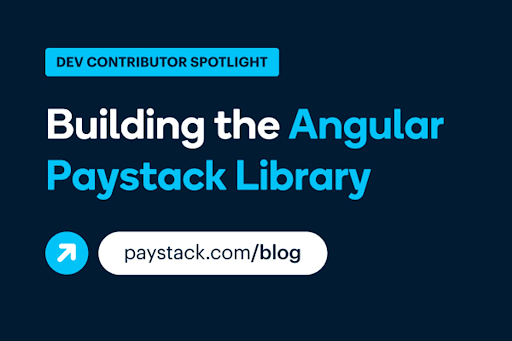
Microsoft Engineer Ekene Ashinze built the Angular Paystack Library, a module that helps developers accept payments in their Angular apps with Paystack. Discover his journey in creating the library and how it’s opened doors for him both locally and globally. Learn more →
Insights
Funding Tracker
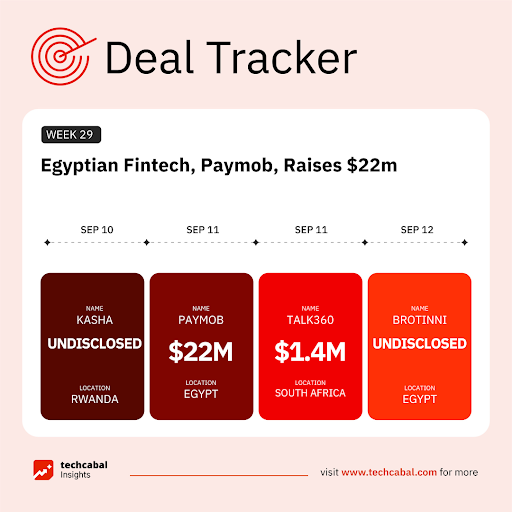
This week, Egypt-based fintech Paymob raised a $22 million Series B extension round led by EBRD Venture Capital. Endeavor Catalyst participated, along with existing investors PayPal Ventures, BII, FMO, A15, Nclude, and Helios Digital Ventures. (September 11)
Here are other deals for the week:
- South African calling app Talk360 raised $1.4 million in a pre-series A round led by HAVAIC. (September 11)
- Rwandan startup Kasha, a digital platform for last-mile access to health, secured undisclosed equity funding from Sanofi Global Health Unit’s Impact Investment Fund. (September 10)
- Egyptian food-tech startup Brotinni secured undisclosed funding from Entilaq. (September 12)
Follow us on Twitter, Instagram, and LinkedIn for more funding announcements. Before you go, our State of Tech in Africa H1 2024 Report is out. Click this link to download it.
CRYPTO TRACKER
The World Wide Web3
Source:

|
Coin Name |
Current Value |
Day |
Month |
|---|---|---|---|
| $57,896 |
– 0.42% |
– 5.08% |
|
| $2,347 |
– 0.83% |
– 14.09% |
|
|
$1.03 |
+ 0.71% |
+ 9.08% |
|
| $134.62 |
– 0.22% |
– 7.38% |
* Data as of 06:33 AM WAT, September 13, 2024.
Events
- Big Cabal Media – Sales Operations Lead, Deputy Editor (Zikoko) – Lagos, Nigeria (Hybrid)
- Paystack – Finance and Strategy Specialist – Lagos, Nigeria
- Pandora – Content Manager, Creative Designer, Social Media Strategist – Lagos, Nigeria (Remote)
- Mobalytics – Gaming and Research Interns – Africa (Remote)
Issue virtual USD cards for you and your customers
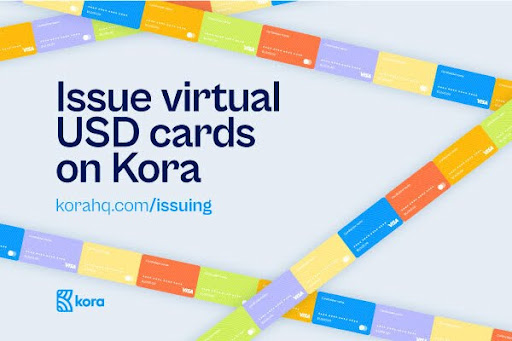
Do you want to issue virtual USD cards for your customers and business expenses? Use Kora’s APIs to issue cards, customise your card program, and set your customers’ funding limit to your risk level. Get started here.

Written by: Faith Omoniyi, Stephen Agwaibor & Emmanuel Nwosu
Edited by: Timi Odueso
Want more of TechCabal?
Sign up for our insightful newsletters on the business and economy of tech in Africa.
- The Next Wave: futuristic analysis of the business of tech in Africa.
- Entering Tech: tech career insights and opportunities in your inbox every Wednesday at 3 PM WAT.
- TC Scoops: breaking news from TechCabal
P:S If you’re often missing TC Daily in your inbox, check your Promotions folder and move any edition of TC Daily from “Promotions” to your “Main” or “Primary” folder and TC Daily will always come to you.






















